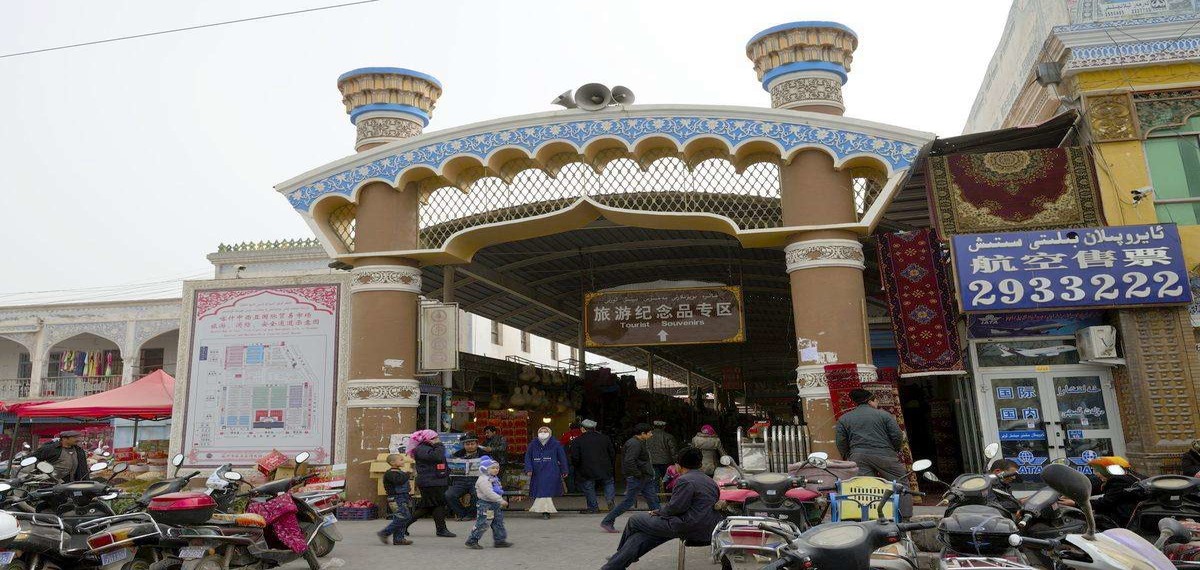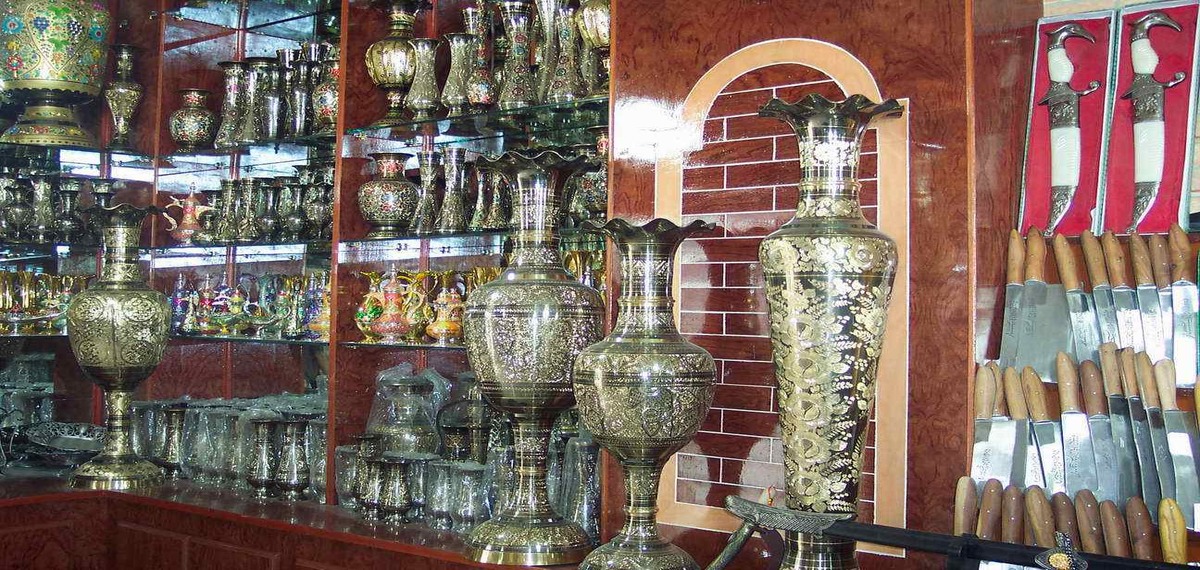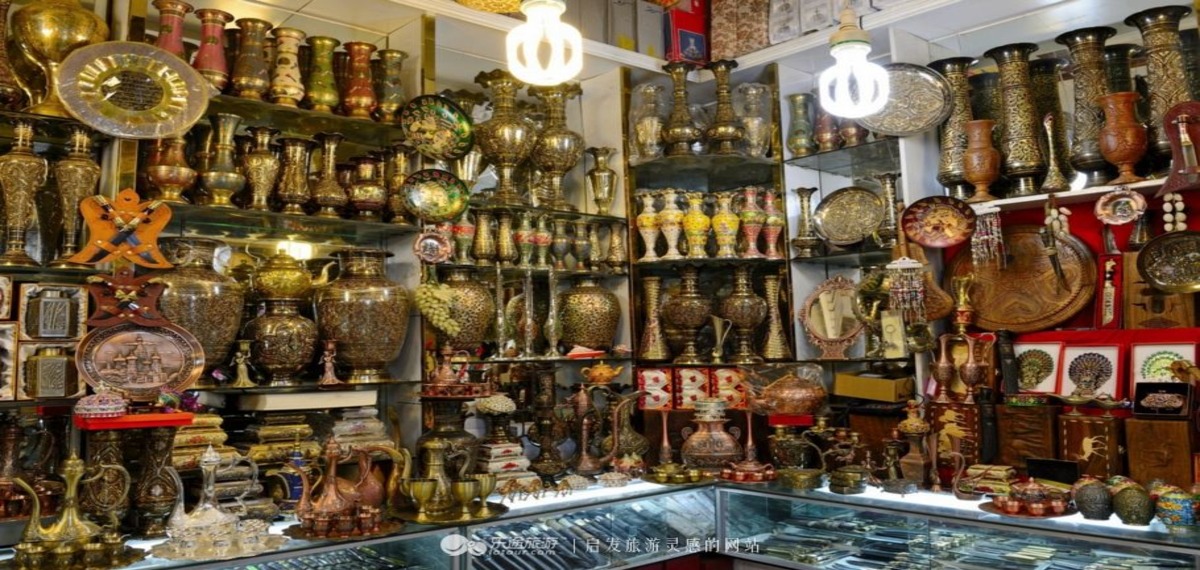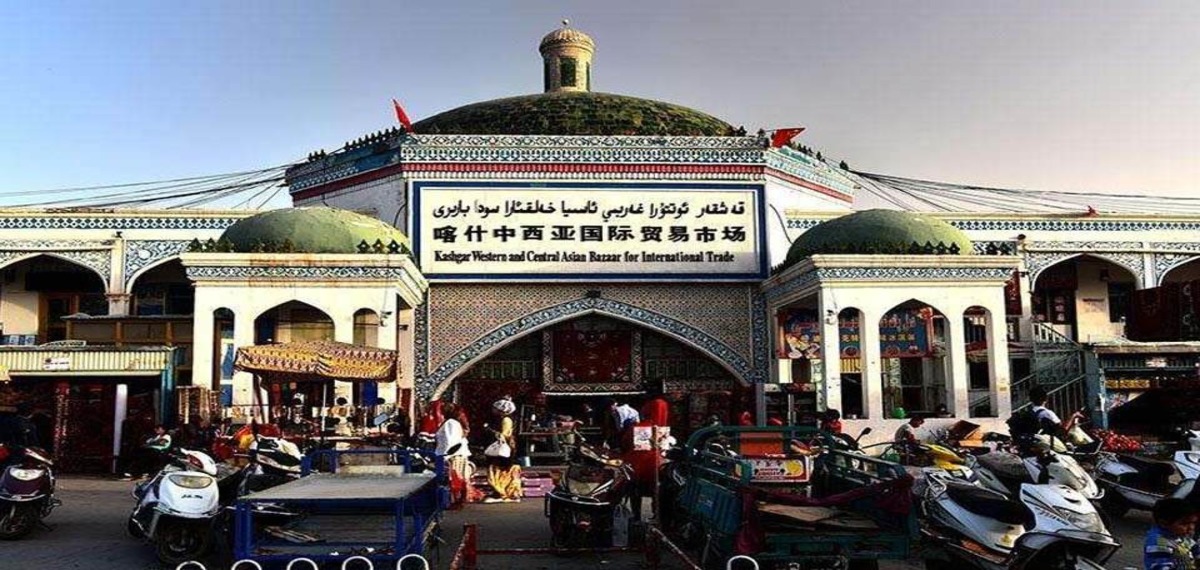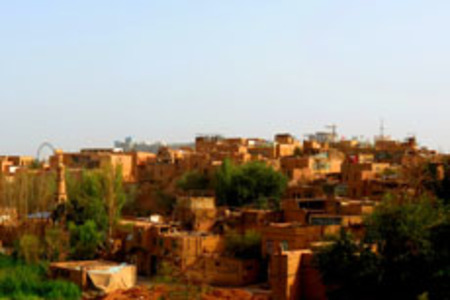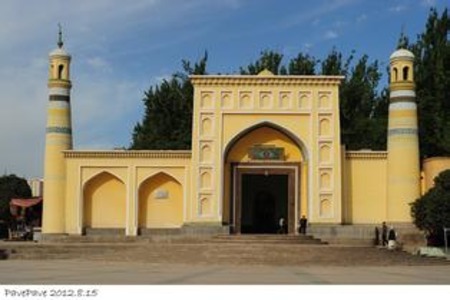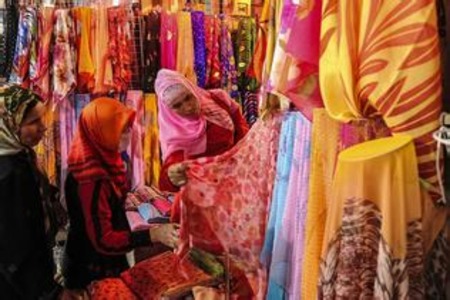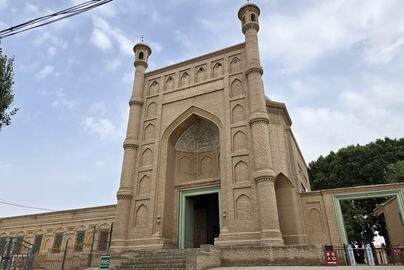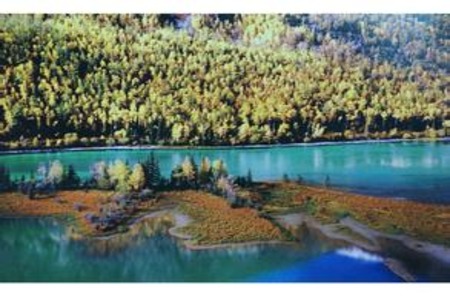Kashgar& Bazaar Five-Day Tour
The Id Kah Mosque is the largest mosque in China. Every Friday, it houses nearly 10,000 worshippers and may accommodate up to 20,000.The mosque was built by Saqsiz Mirza in ca. 1442 (although it incorporated older structures dating back to 996) and covers 16,800 square meters.
Karakul Lake is the highest lake of the Pamir plateau, near the junction of the Pamir, Tian Shan and Kunlun mountain ranges. Surrounded by mountains which remain snow-covered throughout the year, the three highest peaks visible from the lake are the Muztagh Ata (7546m), Kongur Tagh (7649m) and Kongur Tiube (7530m). The lake is popular among travellers for its unreal scenery and the clarity of its reflection in the water, whose color ranges from a dark green to azure and light blue. There are two Kirgiz settlements along the shore of Karakul lake, a small number of yurts about 1km east of the bus drop-off point and a village with stone houses located on the western shores.
The Apak Hoja Mazar is the holiest Muslim site in Xinjiang, China. It is located some 5 km north-east from the centre of Kashgar, in Haohan Village . The shrine is heavily patronized by sightseers.The mazar was initially built in ca. 1640 as the tomb of Muhammad Yūsuf, a Central Asian Naqshbandi Sufi master who had come to the Altishahr region (present-day southern Xinjiang) in the early 17th century, and possibly was also active in spreading Sufism in China proper. Later, Muhammad Yūsuf's more famous son and successor, Afāq Khoja, was buried there as well. All told, the beautiful tiled mausoleum contains the tombs of five generations of the Afāqi family, providing resting places for 72 of its members.The monument is also known as the Fragrant Concubine's tomb, as it is the burial place of one of Afaq Khoja's descendants, Iparhan, who is believed to be the legendary Fragrant Concubine.
A bazaar is a permanently enclosed marketplace or street where goods and services are exchanged or sold. The term originates from the Persian word bāzār, from Middle Persian wāzār, from Old Persian vāčar, from Proto-Indo-Iranian *wahā-čarana. The term bazaar is sometimes also used to refer to the "network of merchants, bankers and craftsmen" who work in that area. Although the current meaning of the word is believed to have originated in native Zoroastrian Persia, its use has spread and now has been accepted into the vernacular in countries around the world. In Balinese, the word pasar, means market
Karakul Lake is the highest lake of the Pamir plateau, near the junction of the Pamir, Tian Shan and Kunlun mountain ranges. Surrounded by mountains which remain snow-covered throughout the year, the three highest peaks visible from the lake are the Muztagh Ata (7546m), Kongur Tagh (7649m) and Kongur Tiube (7530m). The lake is popular among travellers for its unreal scenery and the clarity of its reflection in the water, whose color ranges from a dark green to azure and light blue. There are two Kirgiz settlements along the shore of Karakul lake, a small number of yurts about 1km east of the bus drop-off point and a village with stone houses located on the western shores.
The Apak Hoja Mazar is the holiest Muslim site in Xinjiang, China. It is located some 5 km north-east from the centre of Kashgar, in Haohan Village . The shrine is heavily patronized by sightseers.The mazar was initially built in ca. 1640 as the tomb of Muhammad Yūsuf, a Central Asian Naqshbandi Sufi master who had come to the Altishahr region (present-day southern Xinjiang) in the early 17th century, and possibly was also active in spreading Sufism in China proper. Later, Muhammad Yūsuf's more famous son and successor, Afāq Khoja, was buried there as well. All told, the beautiful tiled mausoleum contains the tombs of five generations of the Afāqi family, providing resting places for 72 of its members.The monument is also known as the Fragrant Concubine's tomb, as it is the burial place of one of Afaq Khoja's descendants, Iparhan, who is believed to be the legendary Fragrant Concubine.
A bazaar is a permanently enclosed marketplace or street where goods and services are exchanged or sold. The term originates from the Persian word bāzār, from Middle Persian wāzār, from Old Persian vāčar, from Proto-Indo-Iranian *wahā-čarana. The term bazaar is sometimes also used to refer to the "network of merchants, bankers and craftsmen" who work in that area. Although the current meaning of the word is believed to have originated in native Zoroastrian Persia, its use has spread and now has been accepted into the vernacular in countries around the world. In Balinese, the word pasar, means market
from
$$578.00
Duration: 5 days
Tour Code: CE-KG-5D01
Departure Date: Every Day
Tour Attractions:Lake Karakuri,Apak Hoja Mazar,Id Kah Mosque,Bazaar
Feature:Historic Sites
Tour Type: /Private English speaking guide+Private Driver+Meals
Tour Code: CE-KG-5D01
Departure Date: Every Day
Tour Attractions:Lake Karakuri,Apak Hoja Mazar,Id Kah Mosque,Bazaar
Feature:Historic Sites
Tour Type: /Private English speaking guide+Private Driver+Meals
D1 Kashgar /Mosque(L/D)
In the morning, your tour guide will pick you up at the airport and drive to the Kashgar ancient town where you can view the classic alleys and houses as well as some grand mosques. The mosques are the holy temples where the Muslim observes the worship and campaign. Stay in the reserved hotel after traveling the whole day.

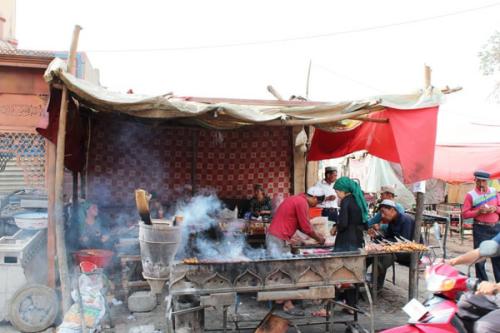
In the morning, your tour guide will pick you up at the airport and drive to the Kashgar ancient town where you can view the classic alleys and houses as well as some grand mosques. The mosques are the holy temples where the Muslim observes the worship and campaign. Stay in the reserved hotel after traveling the whole day.


D2 Lake Karakul (B/L/D)
In the morning, drive from Kashgar to Lake Karakul , which is one of the rare plateau lakes in the world. Here the cattle and sheep flock in the green grassland enjoying the blue sky. You can climb the snow mountains around the lake and paddle the kayak in the clear lake freely. In the evening, with the breeze and stars in the sky, camp out alongside the lake and enjoy the beautiful night scene of the Lake Karakul.


In the morning, drive from Kashgar to Lake Karakul , which is one of the rare plateau lakes in the world. Here the cattle and sheep flock in the green grassland enjoying the blue sky. You can climb the snow mountains around the lake and paddle the kayak in the clear lake freely. In the evening, with the breeze and stars in the sky, camp out alongside the lake and enjoy the beautiful night scene of the Lake Karakul.

D3 Return to Kashgar (L/D)
In the early morning, we will drive back to Kashgar. Stay in the comfortable hotel in the evening.
D4 Apak Hoja Mazar/ Id Kah Mosque/Bazaar (B/L/D)
This day, you will visit the Apak Hoja Mazar, which is 5 kilometers away from Kashgar. As the tombs for the Islamic descendants it’s a cluster of classic Islamic buildings. In the afternoon, explore the Id Kah Mosque and Bazaar in Kashgar. The Id Kah Mosque is one of the largest and influential mosques in China and it is worthwhile to have a visit. There are 21 specialized markets in Bazzar, which is the largest international market in the Northwest China.


In the early morning, we will drive back to Kashgar. Stay in the comfortable hotel in the evening.
D4 Apak Hoja Mazar/ Id Kah Mosque/Bazaar (B/L/D)
This day, you will visit the Apak Hoja Mazar, which is 5 kilometers away from Kashgar. As the tombs for the Islamic descendants it’s a cluster of classic Islamic buildings. In the afternoon, explore the Id Kah Mosque and Bazaar in Kashgar. The Id Kah Mosque is one of the largest and influential mosques in China and it is worthwhile to have a visit. There are 21 specialized markets in Bazzar, which is the largest international market in the Northwest China.

D5 Home (B)
In the morning, you will be sent back to Chengdu from Kashgar.
In the morning, you will be sent back to Chengdu from Kashgar.
| Group size | 1 pax | 2-3 pax | 4-5 pax | 6-9x |
| price | 1543 | 881 | 654 | 578 |
Service package includes:
1. Four nights accommodation
2. Kashgar pick-up and drop-off.
3. Air-conditioned tour vehicle.
4. English Speaking tour guide.
5. Entrance tickets for LaoCheng, Id Kah Mosque , Apak Hoja Mazar and Ka Lake.
6. Catering service as listed above
Service package excludes:
Tips to the guide and driver.
Personal expenses
Tourist sites which are not listed in the itinerary
Any meals which are not specified in the tour itinerary
Single Room Supplement
Hotel&Tent
If you require, we can book hotels in Chengdu, and make private airport and city tour necessary.
Are you interested in this itinerary? Send us a message and let us help you plan and book your China vacation based on this sample. Response within 24 hours. Contact our Travel Consultant.
Similar Journeys You May Like

